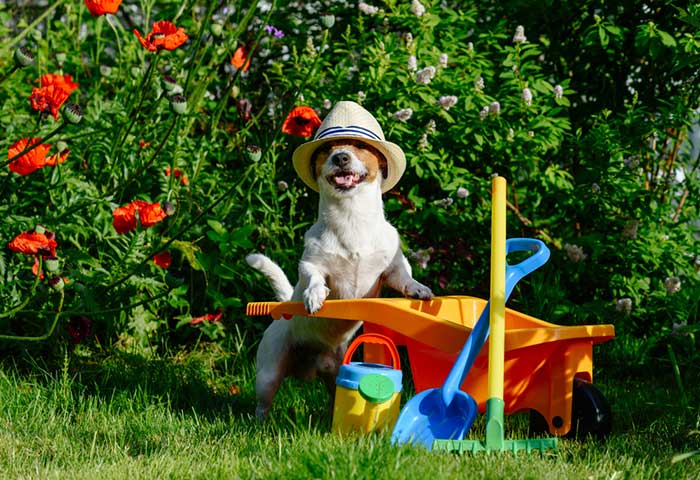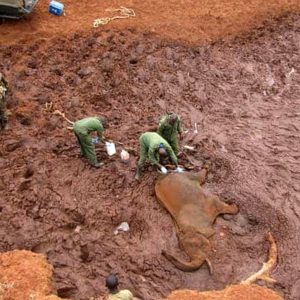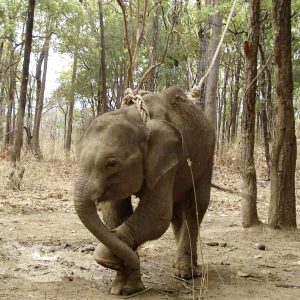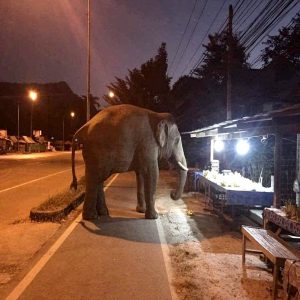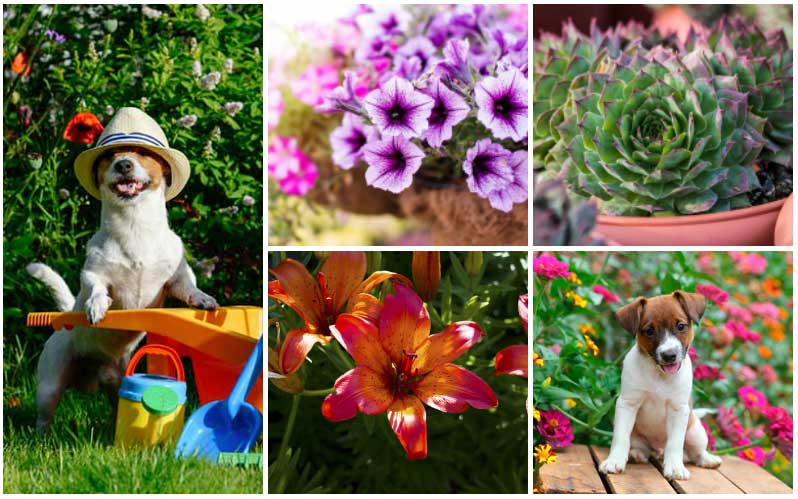
Gardening can be a fun and exciting thing to do in your home, but what if you have a dog? Are there plants that they may ingest that are unsafe for them? Will rubbing up against certain plants be dangerous as well? I have a dog, and he tends to get into everything that I have at his level, which means that plant, the mulch, and more. I love to plant perennials in and around my home so that I do not have to replant them every year, but how do I know which options are safe for my dog? In this guide, we are going to take a look at 10 perennial that are safe for your furry friend.
1. Roses

Roses are not toxic for dogs, though they do pose other hazards for your furry friend who is curious about your plants. They sniff with their nose, which means that they could easily get injured by a thorn. If you are worried about injury, place a fence around the rose bushes that you plant. Roses like slightly acidic soil with good drainage, a good bit of water, and about five to six hours of sun each day.
2. Bee Balm
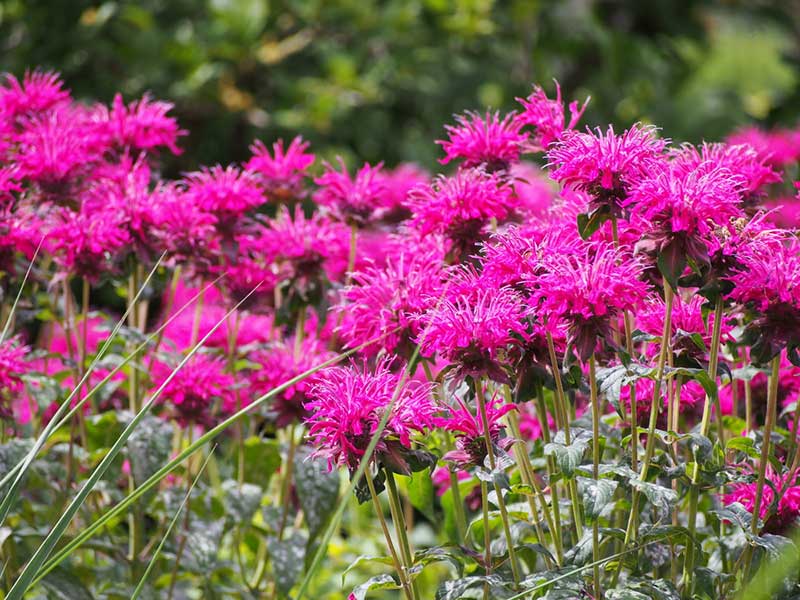
This is a plant that will smell great in your garden, but it is also a safe option for your dog to sniff and enjoy as well. The flowers can range from a bright red color to a soft pink, and the plant can grow to be upwards of four feet tall. It will grow well in either the shade or the sun, and it requires moist soil to grow.
3. African Violet
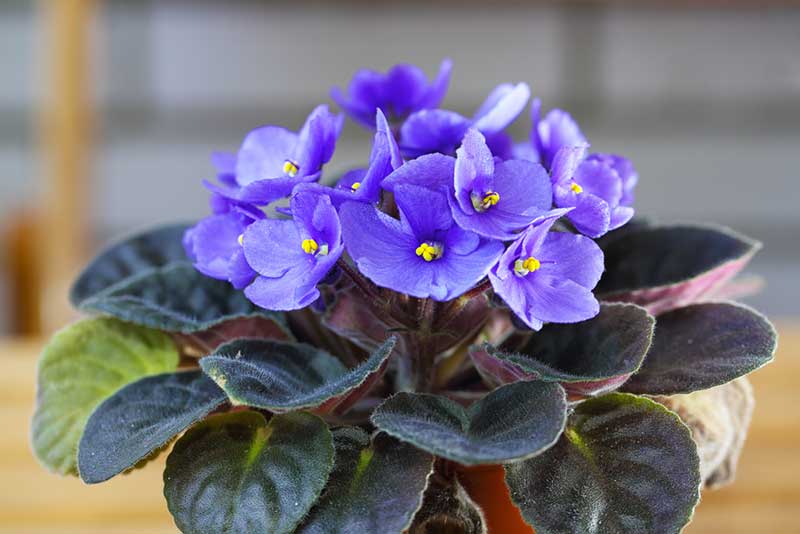
African violets are safe for dogs, and they are easy to care for, which makes them an excellent choice for this list. These flowers have very colorful blooms; in fact, they can even be multicolored, which makes them unique. They are a little sensitive about the temperature of the water that they get, and they will grow best in filtered light instead of direct sunlight.
4. Columbine
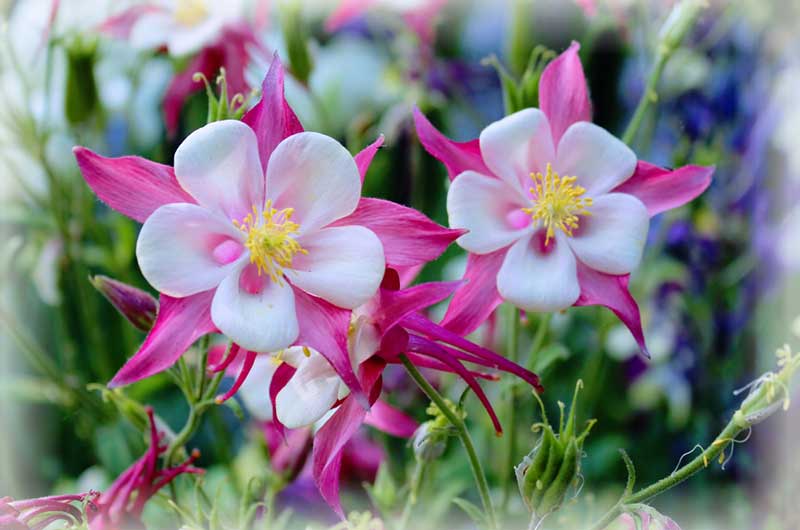
Columbine are brightly colored flowers that are loved by hummingbirds. These colorful blooms are not toxic in any way to animals, so if you have a dog, they will be fine sniffing around the plant. This is a plant that does have spurs though. The plant grows best in zones three through nine. They like to grow in partial shade and well-drained soil. They actually grow well in rock gardens, so this will be an option to consider.
5. Hollyhock
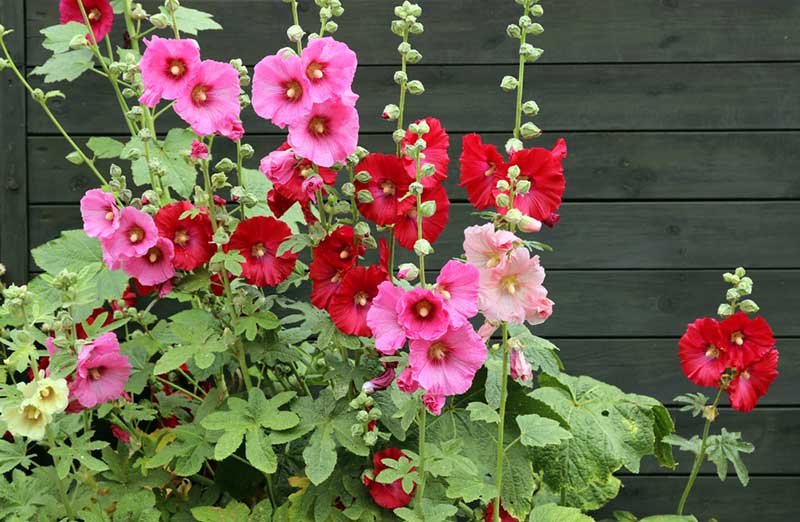
Hollyhocks are not a plant that are poisonous to animals such as dogs, but the leaves and the stems of the plant have fibers on them that can irritate the dog if they rub against the plant. This can cause the dog to get a rash like what you would from touching fiberglass. It is not dangerous for a dog, just itchy. Grown in zones two through 10, these plants can grow to be eight feet tall with full sun and good soil.
6. Petunias
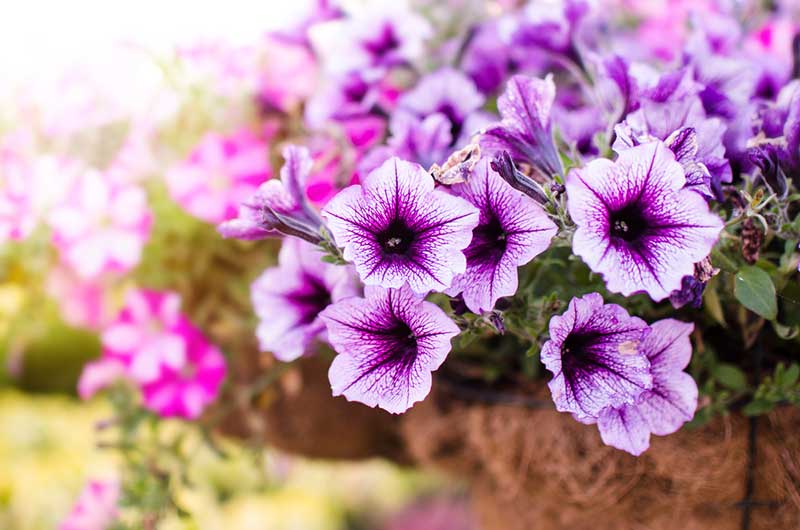
These warm climate perennials are a great option that will not harm your dog. They are a plant that is very tolerant of the heat, so if you live in an area where the temperature does not change for the seasons, they will grow year round. They grow best in zones nine through 11, and they do not need a lot of water to thrive.
7. Tiger Lily
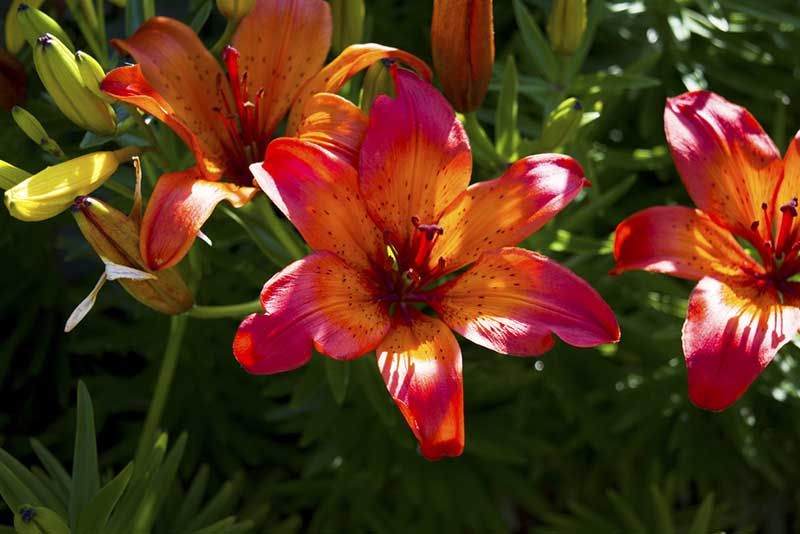
While tiger lily is a plant that you do not want to have around cats, it is not toxic for a dog to ingest. Growing to heights of up to five feet tall, this brightly colored flower likes full to partial sunlight, it prefers to grow in moist soil, and it like slightly acidic soil. It grows best in zones three through nine.
8. Spider Plant
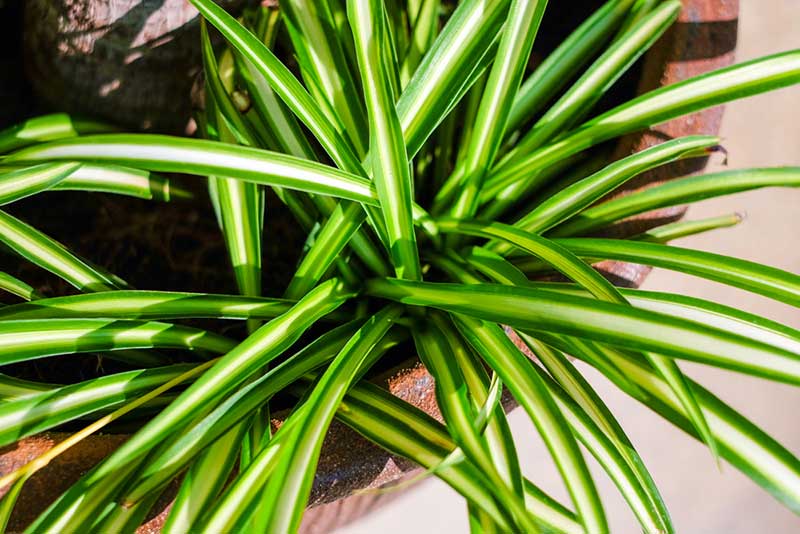
Spider ivy or a spider plant is a common household perennial that will be safe for your dog. While it is a very easy plant to care, you will need to have a location where it can grow without issue. This is a plant that grows best in zones nine through 11. It prefers to grow in humid, indirect sunlight, which is why it grows best indoors.
9. Hens and Chicks
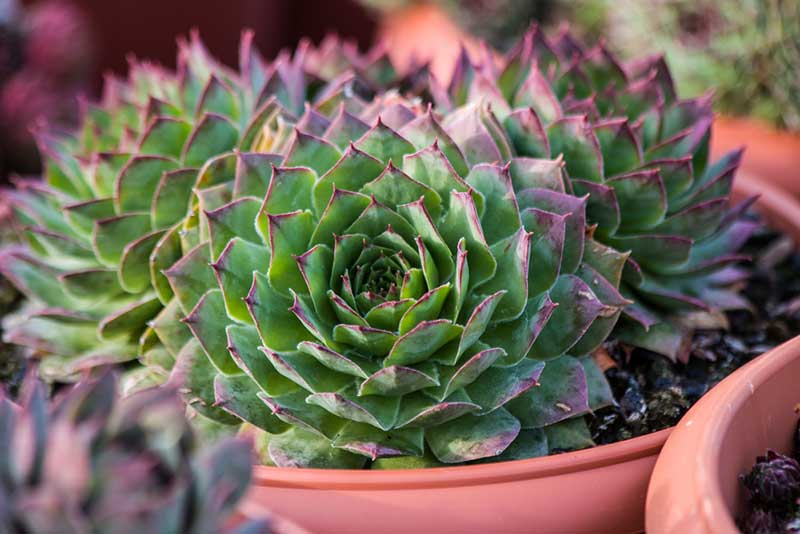
These fast-growing succulents are a very safe plant to have around animals. They are not toxic to dogs, and they are very easy to grow. They tend to grow best as perennials in zones four through eight. These plants do not require much water, and they can tolerate full to partial sun with ease. They can easily grow in any type of soil, including a rock garden.
10. Jasmine

Jasmine is a stunning plant that is perfectly fine to have around a dog. It is not toxic in any way, and it does not require a lot of care. It does need to have well-draining soil, relatively warm temperatures, lots of water, and fertilizer that is rich in potassium to thrive. They grow best in zones nine and 10.
